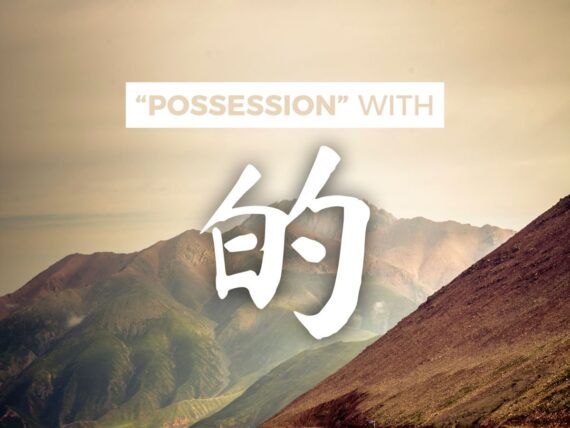For in Chinese – Chinese Preposition 为 (wèi/wéi)

How do people, places, things, events, etc., relate to each other? Is someone doing something “for” someone else? How about “to” them? What’s the origin “from” one thing to another, or distance “from” two places? We’ll discuss all of these prepositions in upcoming posts but for now, let’s focus on the Chinese preposition 为 (wèi/wéi) – “for” in Chinese.
When I was a kid, the word “preposition” made my brain shut off. There was (and still is) something about linguistic jargon that aggravated me because it always felt so pointless.
When I started learning about Chinese grammar, I came across the word 介词 jiècí – ‘preposition,’ but instead of my brain shutting off, I suddenly realized that prepositions are “relators.” 介 (jiè) is the main character in the word “介绍 jièshào – to introduce.” Another way to conceptualize “introducing” is “to create a new relationship.” Now, the idea of a ‘preposition’ wasn’t so scary. They’re mere ‘relators’!
That’s why, in The Mandarin Blueprint Method, we refer to prepositions as “relators.”
The Chinese preposition 为 (wèi/wéi) -“for” in Chinese is a straightforward relator that shows how someone or something does something “for” someone or something else.
The basic structure is:
为 + Person/Place/Thing + Action/Description
Before we go into examples, note that “for” isn’t always the perfect translation of “为 (wèi/wéi),” depending on the context, but that’s more because English is less consistent than Chinese.
Sentence 1:
我要为你做饭。 – Level 16
Wǒ yào wéi/wèi nǐ zuòfàn.
I’ll cook for you.
As usual, the action goes at the end of the sentence in the Chinese version. Bear in mind that the Chinese preposition 为 (wéi/wèi) -“for” in Chinese tends to have a slightly more formal feeling when used in this way. A less formal relator that often appears in the same structure is “给 (gěi),” i.e., “我要给你做饭. (Wǒ yào gěi nǐ zuòfàn.)” You’d likely use 给 (gěi) if it were a couple of friends talking and one offers to cook the other dinner. If you were speaking to a professional contact, you’d be more likely to use 为 (wéi/wèi) – “for” in Chinese.
Sentence 2 – Chinese Preposition 为:
为我们的友谊干杯! – Level 16
Wèi/Wéi wǒmen de yǒuyì gānbēi!
A toast to our friendship!
One way to think of “formality” is as systemized sincerity. When people are using formal language, part of what they’re communicating is that they’re taking the situation seriously (except for satirical comedy).
In the context of this sentence, the person making the toast uses the Chinese preposition 为 (wéi/wèi) because they wish to convey sincerity.
Sentence 3:
为了身体好,我们每天都要走一走。 – Level 15
Wèile shēntǐ hǎo, wǒmen měitiān dōu yào zǒu yi zǒu.
We walk around every day for our health.
为了 (wèile) has a slightly different structure and usage compared to the Chinese preposition 为 (wéi/wèi) by itself. However, its definition of “for the sake of” or “in order to” gets across the same idea. There are two main ways to use it:
1. 为了 (wèile) + Goal + Way of Reaching the goal
2. Way of Reaching Goal + 是 shì + 为了(wèile) + Goal
The sentence above uses the first structure, but you could change it in the following way:
我们每天都要走一走是为了身体好。
Wǒmen měitiān dōu yào zǒu yī zǒu shì wèile shēntǐ hǎo.
Structure one is more common, but look out for both moving forward.
Keep your eye out for the Chinese preposition 为 (wéi/wèi) as you move forward, and as always, remember that these lessons are for noticing while inputting, not for filtering yourself while outputting.
Learn how to pronounce and also learn Chinese characters for free with our 14-day free trial giving you full access to our entire curriculum.
You will be able to read, write and pronounce Chinese characters and get an overall “plan of attack” for your ENTIRE Chinese journey all the way to fluency and literacy.








